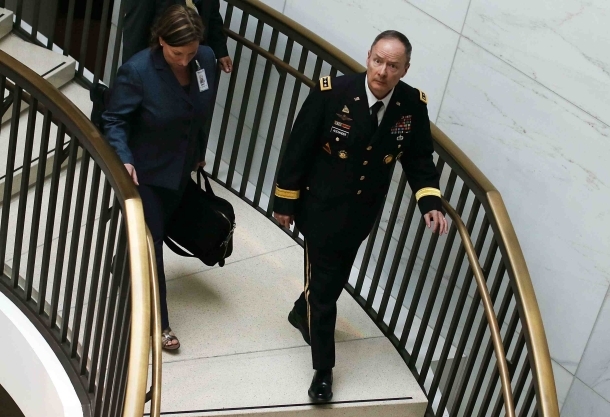NSA admits listening to U.S. phone calls without warrants
Jared Sperli stashed this in security
Stashed in: Privacy!
Earlier reports have indicated that the NSA has the ability to record nearly all domestic and international phone calls -- in case an analyst needed to access the recordings in the future. A Wired magazine article last year disclosed that the NSA has established "listening posts" that allow the agency to collect and sift through billions of phone calls through a massive new data center in Utah, "whether they originate within the country or overseas." That includes not just metadata, but also the contents of the communications.
William Binney, a former NSA technical director who helped to modernize the agency's worldwide eavesdropping network, told the Daily Caller this week that the NSA records the phone calls of 500,000 to 1 million people who are on its so-called target list, and perhaps even more. "They look through these phone numbers and they target those and that's what they record," Binney said.
Brewster Khale, a computer engineer who founded the Internet Archive, has vast experience storing large amounts of data. He created a spreadsheet this week estimating that the cost to store all domestic phone calls a year in cloud storage for data-mining purposes would be about $27 million per year, not counting the cost of extra security for a top-secret program and security clearances for the people involved.
NSA's annual budget is classified but is estimated to be around $10 billion.
Documents that came to light in an EFF lawsuit provide some insight into how the spy agency vacuums up data from telecommunications companies. Mark Klein, who worked as an AT&T technician for over 22 years, disclosed in 2006 (PDF) that he witnessed domestic voice and Internet traffic being surreptitiously "diverted" through a "splitter cabinet" to secure room 641A in one of the company's San Francisco facilities. The room was accessible only to NSA-cleared technicians.
AT&T and other telecommunications companies that allow the NSA to tap into their fiber links receive absolute immunity from civil liability or criminal prosecution, thanks to a law that Congress enacted in 2008 and renewed in 2012. It's a series of amendments to the Foreign Intelligence Surveillance Act, also known as the FISA Amendments Act.
That law says surveillance may be authorized by the attorney general and director of national intelligence without prior approval by the secret Foreign Intelligence Surveillance Court, as long as minimization requirements and general procedures blessed by the court are followed.
A requirement of the 2008 law is that the NSA "may not intentionally target any person known at the time of acquisition to be located in the United States." A possible interpretation of that language, some legal experts said, is that the agency may vacuum up everything it can domestically -- on the theory that indiscriminate data acquisition was not intended to "target" a specific American citizen.
There! Was that so hard to admit? Why couldn't you just admit it all along?
Sir, that's classified information.












6:57 PM Jun 15 2013